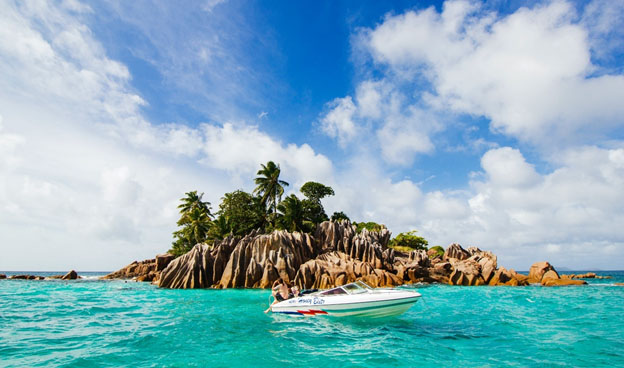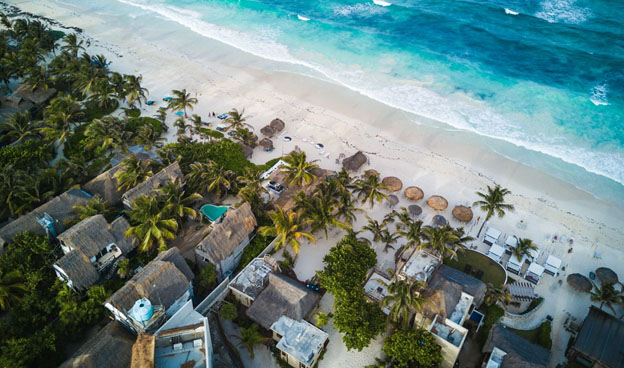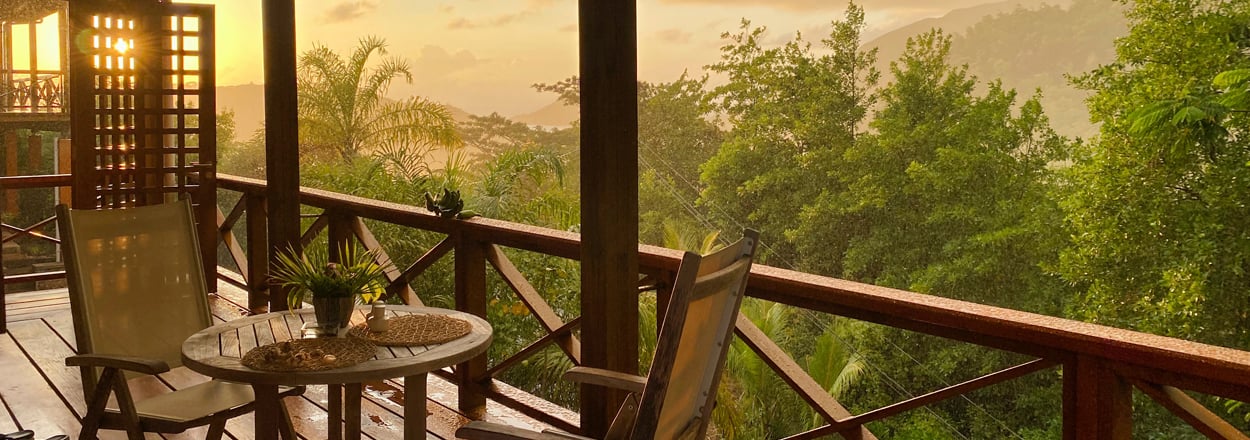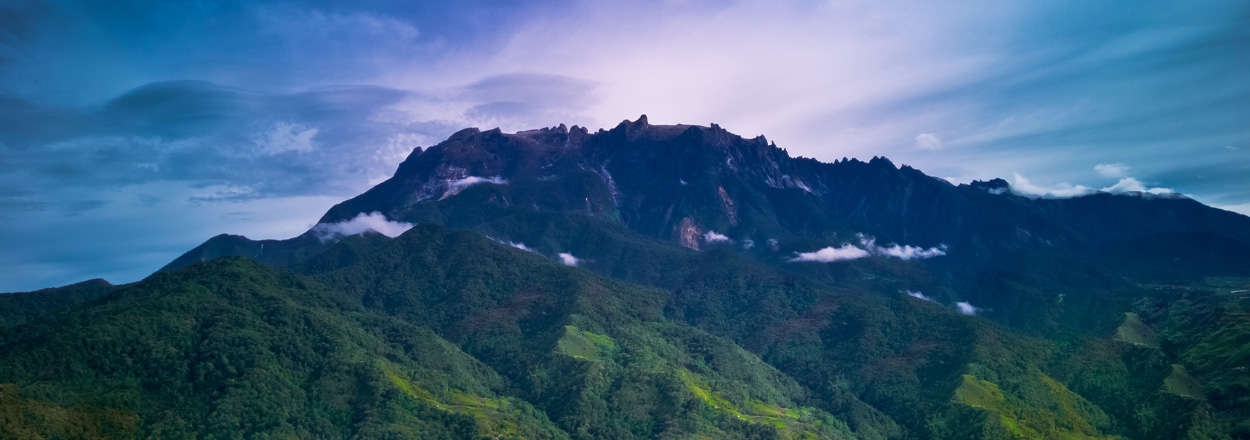Earth Day is an annual event that has been taking place on April 22 since 1970. It rallies and centers support for global environmental protections and is a good reminder that mindful eco travel is a rewarding way to see the world while making lifelong memories. If you want to travel while tapping into some of the great green eco-friendly resorts and sustainable practices on offer around the world, consider:
Socially-conscious Seychelles: Explore protected national parks and help restore the region’s coral reefs
Mindful Maldives: Get to see the real Maldives, including a local food tour that ends with an authentic family dinner
Thoughtful Tulum: See the region’s historic and natural UNESCO World Heritage Sites

Seychelles
The Seychelles—made up of some 115 islands far out in the Indian Ocean—continue to be an alluring, tropical destination thanks in part to their active conservation efforts. Over 50% of the country is officially protected land, which is among the world’s highest making it a top eco travel destination. This has resulted in some of the most spectacular national parks on Earth, and private tours with a knowledgeable guide uncover their delights.
Morne Seychellois National Park on Mahé starts on a palm-fringed beach and ascends almost 1,000 meters (around .6 miles) up as it becomes a lush interior rainforest. Tours can be taken on foot or by bike, keeping visitors’ carbon footprints to a minimum. Your guide should be able to point out species once thought extinct that have recovered on Mahé, such as the jellyfish tree and the Seychelles scops owl.
If you want to actively help conservation efforts, then signing up for coral gardening might be for you. Several programs around the island welcome volunteers to help transport living coral from degraded areas to living reefs, where they can thrive and be enjoyed for generations to come. Overseen by local marine experts, it’s also an enjoyable way to learn about the island’s ecosystems. Reach out to your hotel concierge in advance of your arrival to set it up.
Along the South Coast of Mahé, the beautiful Mango House Seychelles, LXR Hotels & Resorts has implemented property-wide sustainable practices to be expected at eco-friendly resorts. The hotel’s locally produced amenities are packaged in eco-friendly glass bottles and ceramic vessels, and in-room guest amenities, such as razors and toothbrushes, are made from biodegradable bamboo.
Guests can enjoy the figurative and literal fruits of the hotel’s sustainable, organic garden that provides produce used across all five on-site restaurants. Additional ingredients are all locally and ethically sourced, down to the hotel’s delicious homemade limoncello, made from lemon peelings to reduce waste.

Maldives
The Maldives are an equally remote string of almost 1,200 islands with lavish and breathtaking beaches, also in the Indian Ocean. Around 130 of these islands have been developed with resorts, and eco-tourism here has almost become an imperative. Happily, the hospitality and tourism industries here have taken up the challenge with aplomb.
Companies such as Secret Paradise Maldives, for example, lets you experience “the real Maldives” while being mindful about your visit and helping support local conservation projects. Carefully curated tours leave from the capital Malé and focus on helping guests discover authentic, community-based experiences and off-the-beaten-path locations. The tours can be anything from an Insight Into Maldives Marine Conservation, which includes a reef restoration element, to a Maldives Local Food Tour, which starts with a tour of the food markets before a picturesque boat ride to Hulhumale to join a family and prepare a feast.
The eco-friendly choices continue at the Conrad Maldives Rangali Island, located in a tranquil corner of the South Ari Atoll. The hotel has a dynamic partnership with the organization Parley for the Oceans, which aims to help promote sustainable travel. Single-use plastics have been replaced by bamboo or similar biodegradable materials, and the resort spearheads a local reef restoration project and community outreach programs that create apprenticeships for local youngsters and sustainable farming in the region. A healthy ocean is especially important to the hotel, as it boasts not only the world’s first underwater restaurant, Ithaa Undersea Restaurant, but also THE MURAKA, the world’s first luxury residence with a master bedroom that’s submerged 16-feet below sea level.

Tulum
Formerly a quiet fishing village, Tulum’s popularity as a holiday destination has skyrocketed in the last decade or so. Around 80 miles from Cancún, the town is best known for its proximity to a walled Mayan city overlooking the Caribbean. The beautiful coastline south of the site has been developed with upscale retreats promising a rustic environment.
Conserving the region’s resources and natural beauty, as well as its historical legacy, is of utmost importance. The good news is that you can travel here mindfully with a little forethought, and there are many activities once you arrive that are low impact.
As well as the Mayan city, the region has an additional UNESCO-recognized site, the wonderful Sian Ka’an Biosphere Reserve, which is a sustainable tourism hub on the Riviera Maya. You can organize tailor-made tours with expert guides or sign up for one of their set tours. The reserve contains the second largest barrier reef in the world, and is home to 115 species of mammals, 276 species of crustaceans, and more than 500 species of fish. Whether you opt for their Nature Encounter tour, the Reef Snorkel & Mayan Canal tour or Birdwatching at Sunset, you’ll likely encounter wildlife that is rarely seen outside of the reserve.
Environmental concerns are high on the list of priorities at Conrad Tulum Riviera Maya, and the hotel is dedicated to safeguarding Tulum's landscape and resources. The property has worked with local partners to create an environmental education curriculum involving multiple rescue and relocation programs for the surrounding mangroves, wildlife, and coastal forest. You can see the day to day work with their sea turtle protection program as well as innovative waste management systems and water monitoring projects.





comments